The best way to cushion the blow of a job loss? Expect that it’s going to happen to you during your working life.
Planning ahead and building an emergency savings account to cover three to six months of living expenses will become a life ring. Not carrying a lot of credit card debt will also make this super-stressful time less stressful.
“I’m always amazed at what embarrasses people,” said Howard Dvorkin, CPA and chairman of Debt.com. I’ve counseled rational adults who feel ashamed that they’ve been laid off from their job — even though they had nothing to do with the decision. It was market forces or business priorities. Yet these same people weren’t embarrassed running up five-figure credit card bills when they were employed, then paying huge interest charges and other fees because they couldn’t pay them off.”
Of course, we don’t always do what’s good for us, so Work + Money asked finance experts for their best advice on the financial moves to make the moment you’re pink slipped. Here’s what they told us.
Cut Expenses Drastically
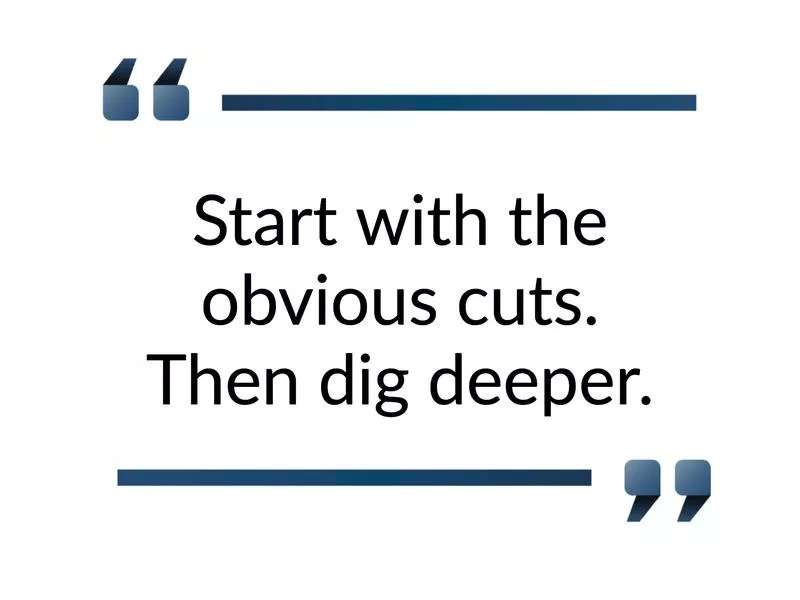
There’s no hiding from this one — you are going to have to cut expenses to an uncomfortable level. Alexander Lowry, a finance professor at Gordon College and executive director of the school’s Master of Science in Financial Analysis program, says keep your internet service. You’ll need it for your job hunt.
Otherwise, take a red pen to everything else. Start with the obvious cuts — restaurant meals, hobbies and nights out. Then dig deeper.
“Talk to your auto insurance agent to find out how much you’ll save by raising your deductible, dropping collision coverage — if your car is old enough — or keeping your vehicle parked in the garage because you won’t be driving to work daily,” Lowry said. “You can also switch to a lower-cost phone plan and ask children which of their extracurricular activities are most important to them, as the rest might have to be put on hold.”
Prioritize Your Bills
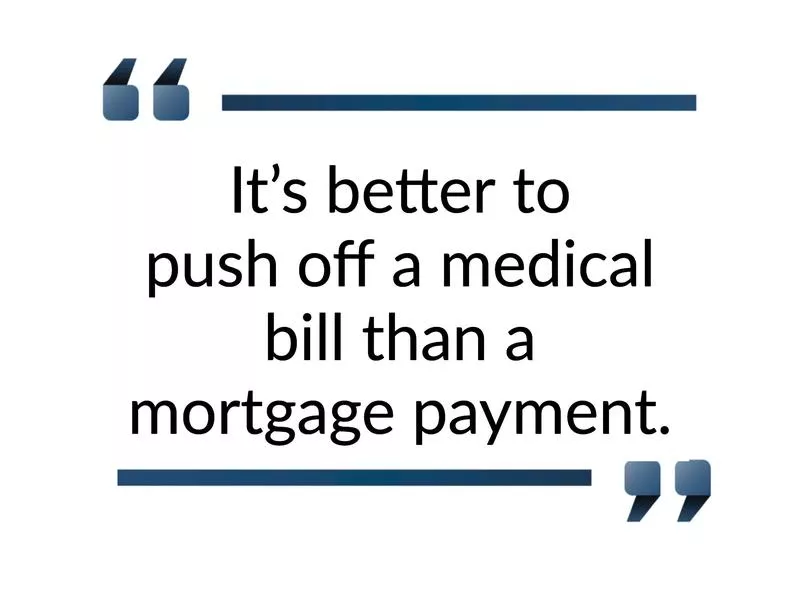
Not all bills are equal, of course, and not just in terms of dollar amounts. Sometimes you’ll have to weigh the potential damage caused by a delayed or missed payment.
“When cash gets tight, you might need to prioritize which bills you need to pay first,” Lowry said. “For example, it’s better to push off a medical bill than a mortgage payment.”
Call Your Creditors
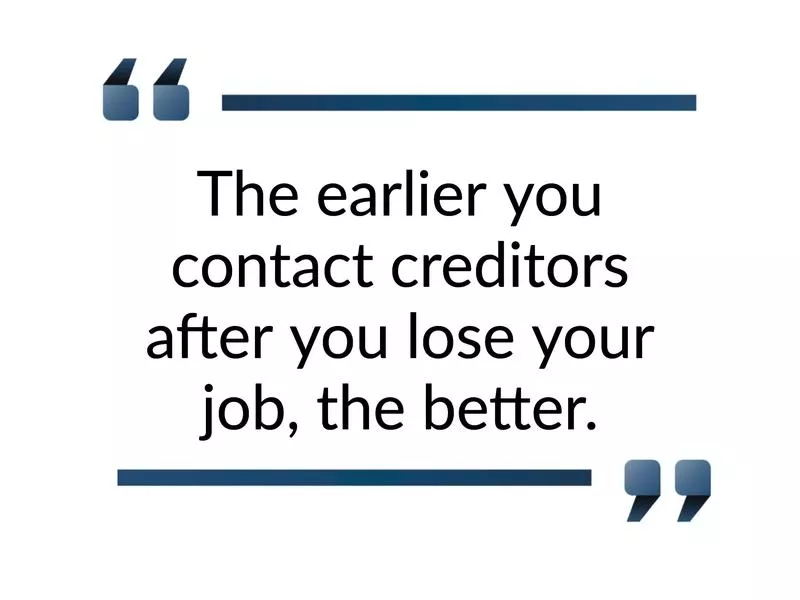
The earlier you contact creditors after you lose your job, the better, says Elyssa Kirkham, a personal finance writer. If you have federal student loans, there are programs that will lower your monthly payment. Many creditors also have programs allowing you to pause or reduce monthly payments, but you need to file the paperwork sooner rather than later. A lot of people delay, thinking their unemployment will be short-term. But that’s an assumption based on factors beyond your control.
“And don’t stop making payments until you have documented confirmation that your loans are deferred. Otherwise you could become delinquent or even default on a loan, which could add major costs to your debt and damage your credit,” Kirkham said.
Spend Money on Your Job Hunt
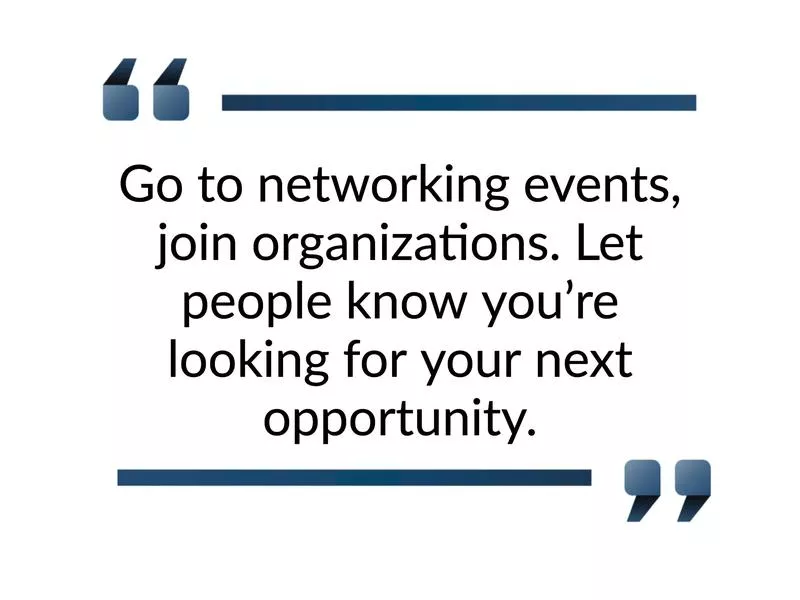
Obviously, prioritize day-to-day living expenses and keeping current on bills. But if you find yourself with extra money, invest in your job hunt.
“Refresh your resume, get out on social media, go to networking events, join organizations,” Gordon College’s Lowry said. “Let people know you’re looking for your next opportunity.”
You may even want to hire a career coach to help update your resume.
Consult a Financial Professional
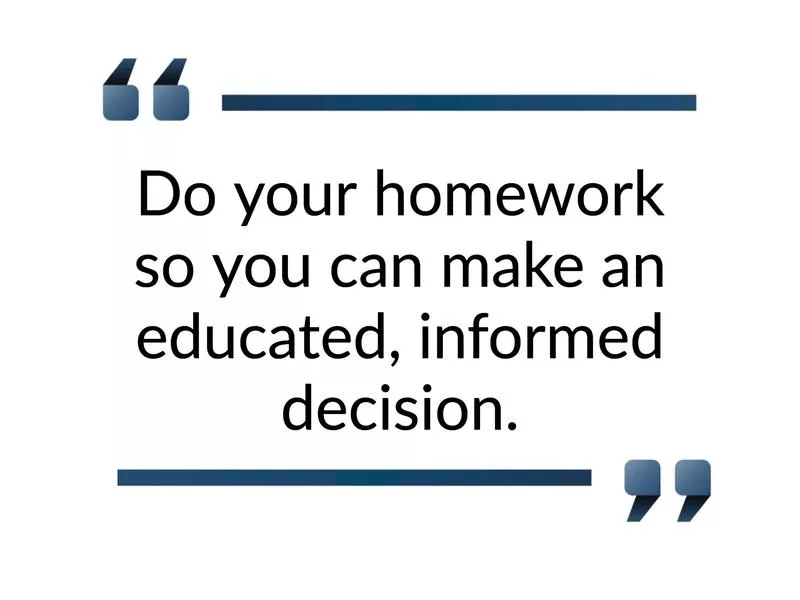
Chris Cosenza, a certified financial planner in Georgia, says talk with your financial planner about options for moving your retirement accounts.
For a lot of people, talking with a financial planner about what to do with your 401(k) or whether you will be allowed to roll your pension into an IRA may be a lower priority than, say, filing for unemployment.
That could be a costly mistake.
“The decisions around what to do with a retirement plan account after you leave your job are more critical today given we over a decade into this bull market and with stocks in the U.S. by most long-term measures about as expensive as they’ve ever been,” Cosenza said. “A full discussion of the client’s overall financial and retirement plan as well as risk budget is necessary to make the right call for each client as often more than one strategy usually makes sense.”
Cosenza suggests you do your homework (with the help of a competent advisor) and that you know your options so you can make an educated, informed decision.
Don’t Even Think About Dipping Into Retirement Savings
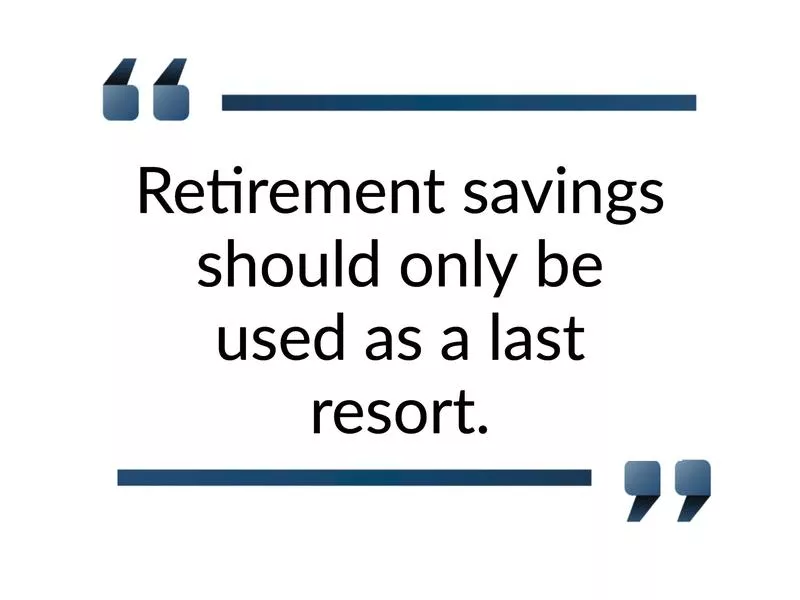
Staci McIntosh, author of “Brace For Landing: Managing Your Life and Career After Being Laid Off, Fired, Pushed Out or Demoted,” says retirement savings should only be used as a last resort, as in, after you’ve asked friends and family for help, or you’ve sold possessions in an effort to downsize.
The tax hit alone, which may come due before you’ve found work, should be enough to scare you off. You’ll also shortchange your future self. It’s bad enough to go through the stress of being laid off. Do you want to compound that stress into the future, wondering if you’d be worrying about running out of retirement savings if you hadn’t tapped into them years earlier?
Consider Downsizing
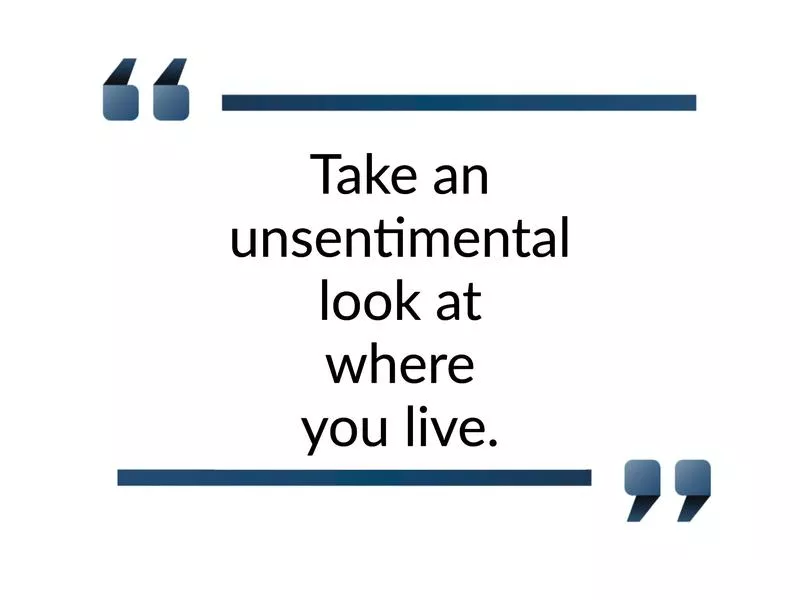
McIntosh recommends taking an “unsentimental” look at where you live and to figure out if you really need a house that big or in that neighborhood. Even if you own your own home, there may be a way to downsize for the duration of your unemployment without giving it up entirely.
“Let’s say you own your house and your mortgage is costing you $2,500 per month,” McIntosh said. Could you rent out your house for $2,500 per month and then pay rent to live in a different house for $2,000 per month? That would save you $500 per month immediately, plus the smaller place is likely to have lower utility costs.”
Consider Selling Your House

Are you a homeowner with equity built up in your house? Would it make more sense to sell your house? If so, that’s one thing to consider.
Another far more drastic measure, McIntosh concedes, would be allowing your home to go into foreclosure. It’s a drastic step that will all but ruin your credit score. But in a desperate situation, that could buy you another four to six months and the extra money you’d have from the mortgage payments.
“It takes approximately seven years for your credit to fully recover from a foreclosure,” she said. “However, if you don’t use credit for other items, it may be worth letting it drop in order to avoid mortgage payments for several months. Many people voluntarily gave up their homes during the mortgage crisis. It’s no longer uncommon, nor a stigma, to do so.”
Take a Low-Wage, Part-Time Job
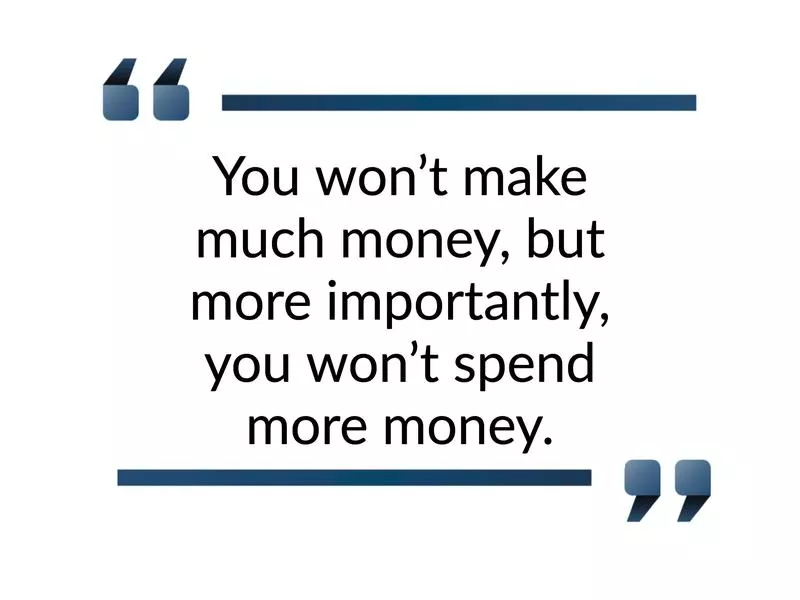
Dvorkin says people who lose their job shouldn’t be quick to dismiss taking on a part-time gig until they find a replacement job, even if it’s at a lower wage than what you’re used to. Any money helps when you’re out of work, and there’s also a hidden benefit.
“You won’t make much money, but more importantly, you won’t spend more money,” he said. “Job loss commonly causes depression, and depression can cause ‘shopping therapy.’ By staying busy, you’ll earn a few bucks and stop yourself from drowning your sorrows in a Starbucks.”
Take a Lower-Paying, Full-Time Job
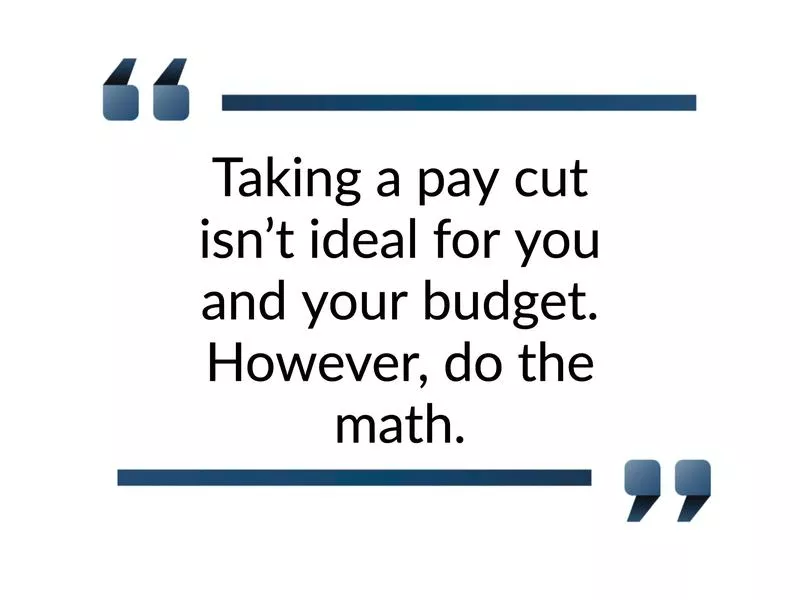
While Dvorkin recommends taking low-wage, part-time work, McIntosh says people should also consider lower paying, full-time jobs in their own industry. Many unemployed people make the mistake of dismissing openings outright because, while the work may be similar, the salary is lower than what they were making.
“Taking a pay cut isn’t ideal for you and your budget. However, do the math,” McIntosh said. “For example, let’s say your new job only pays $120,000 per year, while your old job paid $140,000. That sounds like a big difference.
It’s not. If you’re unemployed for another two months, you will be out the $20,000 difference in salary anyway. And you might be unemployed longer than that. My advice: take the job now and worry about a higher paying job later.”